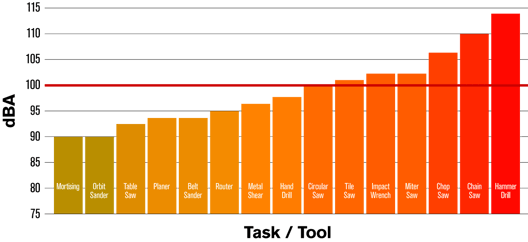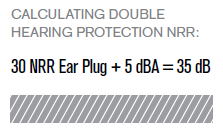- HOME
- PRODUCTS
- Arm Protection (119)
- Cold Stress (1)
- Critical Environment (170)
- Electrical Safety (133)
- Emergency Responder (37)
- Ergonomics (12)
- Eye Protection (356)
- First Aid (17)
- Hand Protection (1447)
- Head Protection (103)
- Hearing Protection (49)
- Heat Stress (37)
- Protective Clothing (454)
- Respiratory Safety (44)
- Warning Beacons (28)
- BRANDS
- CHANNELS
- Sales Tools
- NEWS, ARTICLES & EVENTS
- Log in or Sign Up
- PRODUCTS
- /// Hand Protection
- /// Hand Protection
- Chemical Resistant Gloves
- Cold Protection Gloves
- Cut Resistant Gloves
- Disposable Gloves
- Fabric Work Gloves
- General Purpose Gloves - Coated
- General Purpose Gloves - Uncoated
- Heat Protection Gloves
- High Performance Gloves
- Leather Drivers Gloves
- Leather Palm Gloves
- Parade & Uniform Gloves
- /// Head Protection
- /// Eye Protection
- /// Hearing Protection
- /// Respiratory Safety
- /// Protective Clothing
- /// Arm Protection
- /// Heat Stress
- /// Warning Beacons
- /// Cold Stress
- /// Ergonomics
- /// First Aid
- /// Welding Protection
- /// Controlled Environment
- /// Electrical Safety
- /// Emergency Responder
- /// Hand Protection
- BRANDS
- CHANNELS
- SALES TOOLS
What is Double Hearing Protection and When Would You Need It?

You might be asking yourself if double hearing protection is something you should be considering. In order to understand what double hearing protection is, let’s start by reviewing why it is needed. OSHA has Occupational Noise Exposure standards in the U.S. to protect general industry workers from experiencing hearing damage by regulating the amount of noise they’re exposed to on the job, requiring the implementation of a hearing conservation program and having administrative controls in place. For general industry applications including utility work, manufacturing work and service sector work, adhering to this OSHA standard can typically be achieved by using a single hearing protection device – be it earmuffs or ear plugs. This is because the attenuation of a singular hearing protection device is enough to ensure adequate hearing protection for the wearer. Double protection is necessary when the attenuation of a singular hearing protection device is not enough to ensure adequate hearing protection for the wearer.
SETTINGS WHERE DOUBLE HEARING PROTECTION IS NECESSARY
Let’s review a few situations where the protection from a single hearing device would be insufficient. According to the National Institute for Occupational Safety and Health, any worker whose 8-hour time-weighted average (TWA) exposure exceeds 100 dBA should wear double hearing protection. Below is a chart of commonly used tools on the typical construction job site- you will notice that close to half of the tools illustrated below produce up to 100 decibels or higher. 
dBA indicates the intensity of sound . The chart above indicates each tools relative intensity of sound in air as perceived by the human ear.
CRACKING THE CODE ON DOUBLE HEARING PROTECTION
Let’s expand on what double hearing protection is. It’s simpler than you think: Double hearing protection occurs when two hearing protection devices are used at the same time. The dual or “double protection” factor is most commonly achieved by wearing earmuffs and ear plugs. A key element of ensuring you’re receiving the highest decibel (dB) protection when utilizing ear plugs as a part of your dual hearing protection is understanding the impact their fit has on effectiveness. To receive the highest protection, the ear plug must be worn properly. If not, the added dB from wearing dual protection may not be achieved.
Wondering how double protection translates to a higher dB? All it takes is a simple calculation to determine what dB your double hearing protection is providing: Add 5 dBA to the highest Noise Reduction Rating (NRR) of the higher-rated hearing device. For example, if you are using an ear plug with a 30 NRR and an earmuff with a 26 NRR, you would add 5 dB to the 30 NRR for the ear plug. Your protection level would then increase to 35 dB, assuming the ear plug is worn properly. This simplified method of calculating double protection dBA is based on OSHA recommendations for doubling protection.
ARE THERE ANY DISADVANTAGES?
One downside to wearing double protection is that it may put the worker in harm’s way should the worker be unable to hear warning signs in their surrounding area. For this reason, double hearing protection should be carefully considered for certain worksites. Best practice is to use the right product to attain the comfort level and fit you need to be safe on the job without compromising your ability to be aware of your surroundings.
Noise-induced hearing loss is a common workplace injury that is 100% preventable. PIP® offers a complete line of hearing protection products that keep workers protected from loud working environments while achieving all-day comfort and optimal sound attenuation.
To learn more about PIP’s affordable line of hearing protection, click on the appropriate link below, leave us a comment or contact your local PIP® Sales Representative.
What is Double Hearing Protection and When Would You Need It?
You might be asking yourself if double hearing protection is something you should be considering....Reusable vs. Disposable – Using The Right Garment For The Right Job
Disposable garments or reusable garments – which choice is right for you? There has always been...Unraveling the Dynamics of ESD Safety
When it comes to Electrostatic Discharge (ESD) Safety, it’s all about control – static control. ...Proposition 65 | Privacy Policy | Contact Us | Full Site
© 2012-2026Protective Industrial Products, Inc. All rights reserved.








